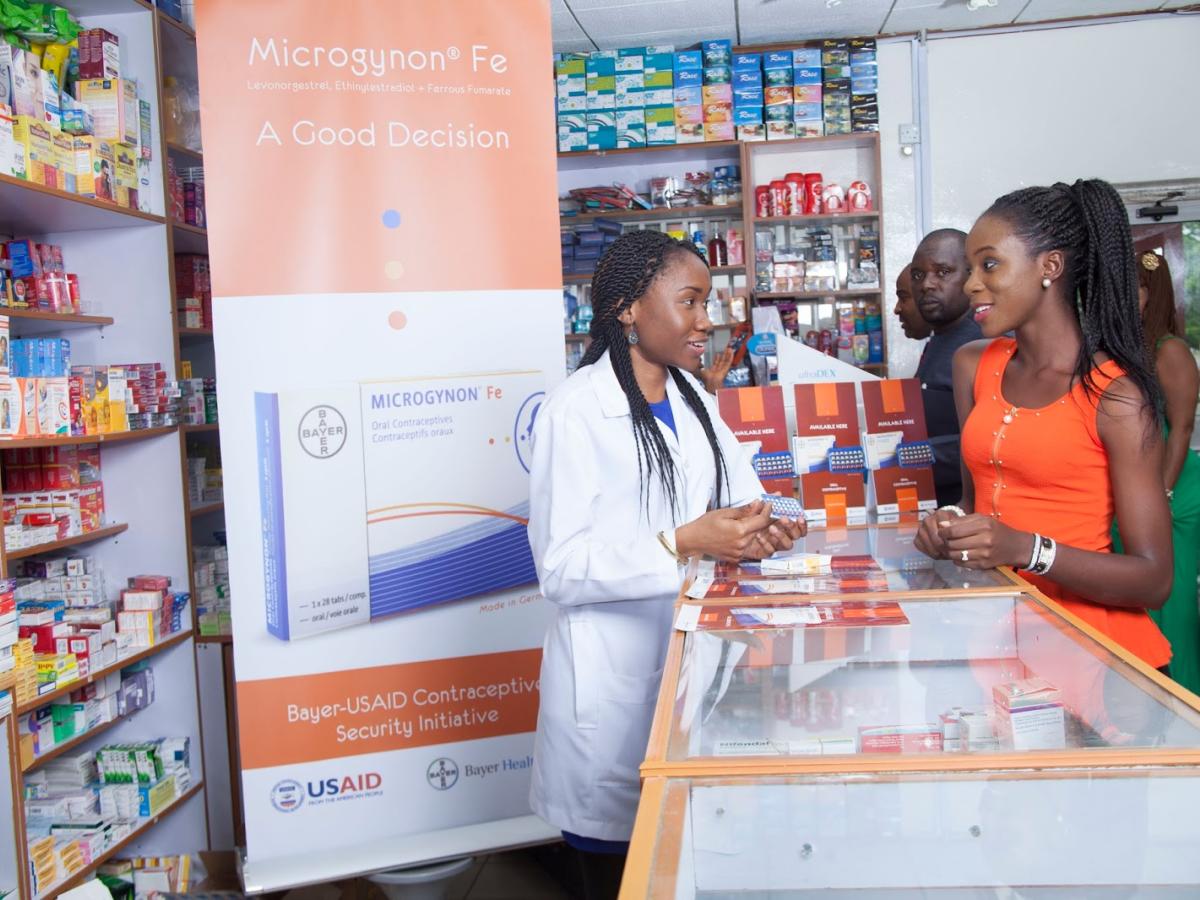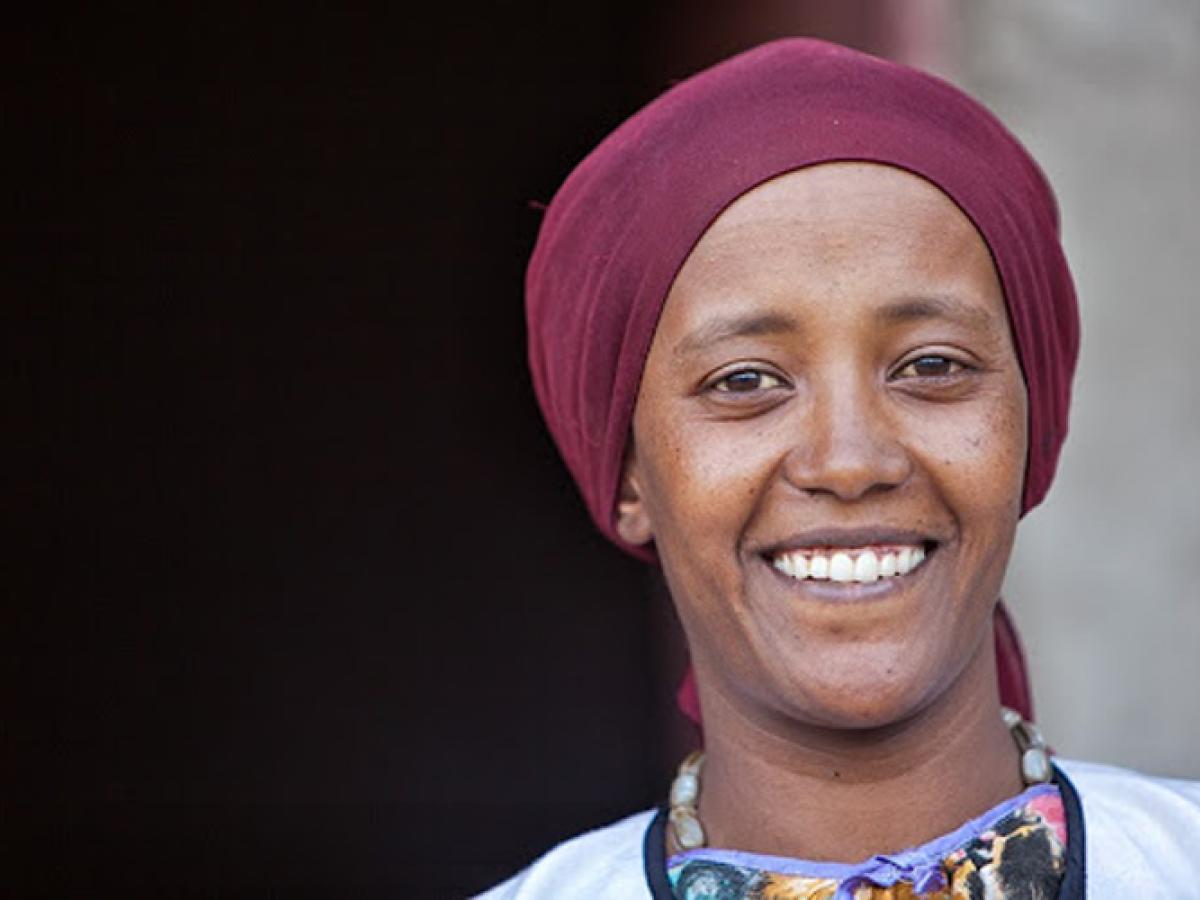Problem
In many developing regions, women and couples live closer to a private pharmacy or drug shop than a public clinic, or find a private clinic’s hours more convenient for their work schedule and other responsibilities. These consumers want access to affordable, quality family planning methods; however, for many middle-income women in sub-Saharan Africa, commercial contraceptives like the pill are often high-priced, brand name contraceptives that are too expensive. Donors subsidize contraceptives in both the public and traditional social marketing sector—a sector that offers branded contraceptives at a subsidized price point—despite the fact that an emerging middle class may be able to afford to pay a market price for these methods. Donations and subsidies are often not sustainable in the long-run.
Solution
The U.S. Agency for International Development (USAID) and Bayer HealthCare (Bayer) partnered to introduce a new contraceptive pill—Microgynon Fe®—sold directly through local pharmacies, at an affordable price point for middle-income women. Additionally, Bayer committed to maintaining this affordable pricing strategy well-beyond its partnership with USAID, which will enable host country governments and donors to focus subsidized voluntary family planning services on lower income markets.
Through the Bayer-USAID Contraceptive Security Initiative (CSI), an innovative public-private partnership, USAID leveraged a 1:1 match of resources, in addition to Bayer’s existing production capabilities, commercial distribution channels, and supply chain expertise to introduce Microgynon Fe® at a below commercial price. USAID supported the Initiative’s communication materials, including billboards, pharmacy materials for consumers, and radio and TV spots. CSI originally launched in Ethiopia, and was subsequently brought to scale in 10 additional individual markets and countries in sub-Saharan Africa.
Local wholesalers and pharmacists generate income on sales as part of the health supply chain, which gives them a personal interest in having the contraceptive in stock. By earning profit on each sale, local businesses are simultaneously contributing to their country's economic growth, accelerating the public-private partnership’s impact on country commitment, capacity, and sustainability.
Outcome
As partners on the Journey to Self-Reliance, Bayer and USAID strengthened local capacities, accelerated enterprise-driven development, and established enduring local partnerships across sub-Saharan Africa. This sustainable public-private partnership created a force-multiplier that achieved greater impact than either USAID or Bayer could have achieved alone.
USAID’s public-private partnership with Bayer achieved the following in 11 countries and individual markets:
- 1,082,791 Microgynon Fe® packs sold
- 72,186 couple years of protection (CYP)—the estimated protection provided by Microgynon Fe® based upon the volume of all contraceptives sold during the partnership
- 2,584 pharmacy outlets stocked Microgynon Fe®
- 8,520 pharmacists trained on voluntary family planning methods and counseling
- A sustainable, affordable, high quality contraceptive pill was commercially available in these markets at a low price point
In 2016, at the end of the CSI public-private partnership, Bayer renewed its commitment to family planning with the launch of the Jadelle® Access Program, which cut the price of this contraceptive method in half. This new program is making the contraceptive more affordable, expanding women’s choice of voluntary family planning options, and opening new inclusive markets.
USAID’s Office of Population and Reproductive Health’s (PRH’s) strategic approach to private sector engagement aligns with the Journey to Self-Reliance by partnering with the private sector for greater scale, sustainability, and effectiveness of USAID’s family planning programs. PRH’s approach to private sector engagement builds the requisite skills, resources, and knowledge that enable health systems and local markets to sustain progress in family planning outcomes over the long term, and accelerates host countries’ progress on their Journey to Self-Reliance.
About the Author
Camille Ray is the Strategic Communications and Outreach Special Advisor in USAID’s Office of Population and Reproductive Health.



